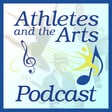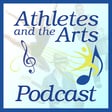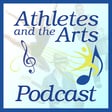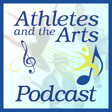
The Athlete And The Artist w/ Tim Cunningham
Join Yasi and Steven, along with Athletes and the Arts co-founder Randy Dick, as we talk to the quintessential Athlete and Artist, Tim Cunningham. He turned down a chance to play in the NFL to pursue a career as a professional jazz musician. Thirty years later, after recording 8 albums and touring all over the world, he is still going strong. He talks about the difficulty playing Division 1 football, maintaining his passion for music over the years, and staying healthy while playing the sax.
Tim's website: www.timcunninghammusic.com
Instagram: @tim.cunninghamsaxophonist
Facebook: @TimCunninghamMusicPage
Bio: When Tim Cunningham was faced with the choice between the football field or the musical stage, fortunately he chose the latter. Having played the saxophone for over half his life, Tim spent his college years at Michigan State splitting his time between playing defense and playing music. And although a football scholarship saw him through school, his passion for the sax has carried him well beyond, as he passed up an NFL contract and eventually pursued a career in music.
For decades the words "smooth , sultry, cool & funky" have been used to describe Tim's high energy and emotional stage show as his sexy blend of smooth jazz and soulful R&B connects with people of all ages, races and genres of music. This unique and versatile style has earned Tim the pleasure of opening for jazz greats Dave Koz, Norman Brown, Brian Culbertson and George Benson. On the flip side, his bumpin' R&B flavor has on occasion paired him with Earth Wind & Fire, Cameo, Boyz II Men, Patti Labelle, Frankie Beverly, Jeffrey Osborne, and the late Luther Vandross.
Signed to Atlantic Records in 1994 Tim's first major label release, "Right Turn Only," featuring the efforts of Will Downing, Brian Culbertson, Kevin Whalum, and Bobby Lyle was released in 1996. It's featured single, "This is the Life," hit #19 on the Smooth Jazz Chart and received much international airplay. Tim's additional CD credits include "Sax Change Operation", "A Change in Altotude", "Waiting For Love", "Inner Peace", and "Manchester Road" which was picked up by Nite Breeze Music/Universal in 2008. His 2011 release entitled "Reflection", features a cool collection of original tracks packed with smooth grooves and emotional ballads. In 2012 Tim recorded and released "Tim Cunningham Live" where he covered a collection of some of his favorite songs.
In 2019 Tim hosted and performed in the 1st Annual Smooth Jazz Cruise on Land in St. Louis. This inaugural festival featured Brian Culbertson, Eric Darius, Grace Kelly and Erin Bode and was produced by Entertainment Cruises Productions and producers of the Smooth Jazz Cruise.
Tim's experiences bridge beyond the live stage to TV as he co-wrote and performed the theme song to 20th Century Fox's "Bertice Berry Show". He also appeared in the movie, "The Ghost Who Walks" as Officer Taylor, three episodes of "The Untouchables" TV series as The Saxophonist, BET's "Jazz Central and a commercial spot for Budweiser. In 2021 "Smile" co-written with Al Caldwell from Tim's "Waiting for Love" CD was featured in the movie, "The Job" written, directed and produced by Randy J. Goodwin.
In October 2022, after nearly a 10 year recording hiatus "Freedom" was released, with his new single, "Enough Said" (remix) climbing the Smooth Jazz Network , Radio Wave and Smoothjazz.com charts.



